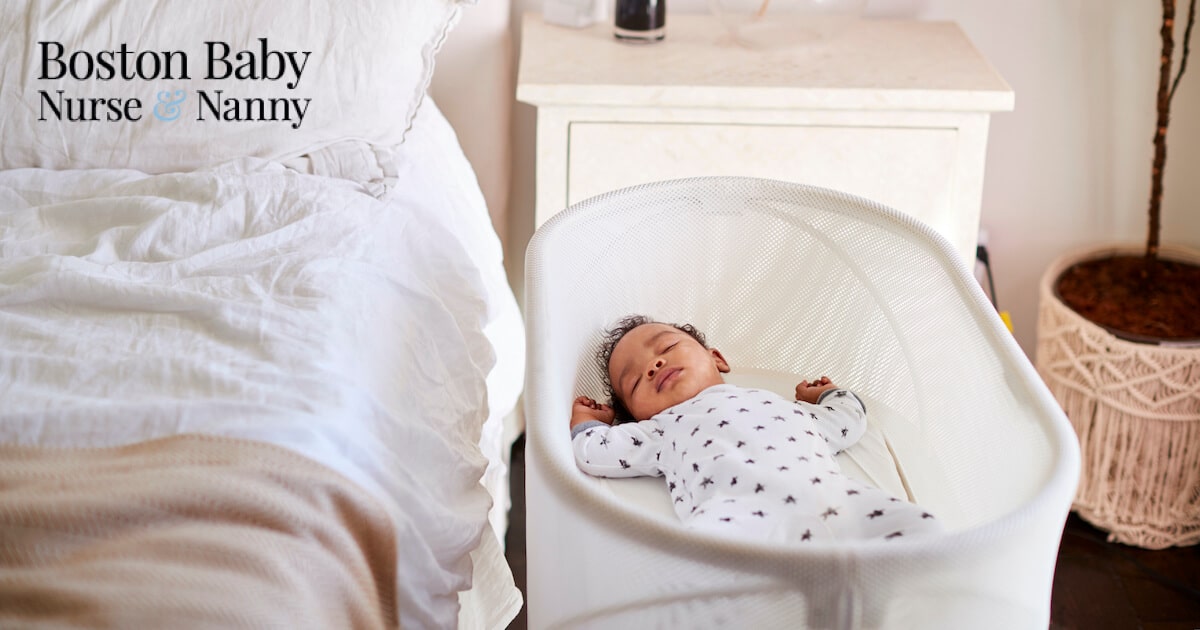How Long Do Babies Sleep in Bassinet?
On average, babies sleep for a total of 14 to 17 hours in 24 hours. During this time they usually make three to five naps during the day and one long stretch at night. Of these 14-17 hours, newborns may spend up to 8-9 hours sleeping in their bassinet.
This will decrease as your baby grows older until he or she is ready for a toddler bed around 18 months old. Although all babies are different, it’s generally recommended that infants remain in a bassinet until they reach four months old or exceed 15 pounds in weight. To ensure safety while your baby sleeps in the bassinet, always place them on their back and use firm mattresses with tight fitting sheets and blankets.
Babies need a lot of sleep in order to develop and grow, and having the correct sleeping environment is key. A bassinet can be an ideal place for your baby’s first few months of life as it provides them with their own safe space that also keeps them close by so you can keep an eye on them. On average, babies will sleep between 8-10 hours during the night in their bassinet, but this may vary depending on age and individual needs.
It is important to take into account any additional naps they may need throughout the day when planning out a schedule for your little one!

Credit: www.4moms.com
When Can I Move My Baby from Bassinet to Crib?
When it comes to deciding when to move your baby from a bassinet to a crib, the best time is typically between three and four months old. It’s important to remember that there is no hard-and-fast rule for when you should transition your little one out of her bassinet and into her crib – each baby develops differently and at his or her own rate. However, as babies start becoming more active around this age, they may become too big or too energetic for their smaller sleeping space.
A few things you can look for in order determine if your baby is ready for the transition include: are they rolling over during sleep? Can they support themselves by propping up on their arms? Are their legs extended beyond the edge of the bassinet?
If so, then it may be time to make room in the nursery for a new bed!
Another thing to consider before making the switch is how safe your child’s crib environment will be. Make sure that you always use a firm mattress and ensure there are no loose items such as pillows or stuffed animals inside that could potentially suffocate them while asleep.
Additionally, avoid placing any cords near where your infant might reach them – even if they appear far away from him/her now – just in case he/she becomes more mobile than expected down the road!
Ultimately, moving your baby from a bassinet to a crib doesn’t have do occur overnight; take all necessary precautions and watch out for signs of readiness before taking this next step with your infant’s development journey!
Can Newborns Sleep in a Crib?
Yes, newborns can sleep in a crib. However, it is important to follow safe sleep guidelines when placing your infant in their crib. To ensure the safest environment for your baby’s sleep and reduce risk of SIDS (Sudden Infant Death Syndrome), you should place them on their back, with no blankets or pillows; this is especially true for young infants under 4 months old.
It is also important to make sure that the mattress fits snugly in the crib frame and there are no gaps between the mattress and side rails. If using a bumper pad, be sure that it does not come higher than your baby’s shoulders so they cannot roll into it or get trapped underneath it. Finally, keep all toys and other objects out of the baby’s sleeping space as these could pose suffocation hazards if placed too close to them while sleeping.
Following these safety requirements will help create an ideal sleep environment for both you and your little one!
Can a Baby Sleep in a Bassinet Every Night?
Yes, a baby can sleep in a bassinet every night if it is the right size and equipped with the proper bedding. Bassinets are designed to provide an ideal sleeping environment for babies up to six months old, as they are generally smaller than cribs and provide more stability for younger infants. To ensure that your infant has the best night’s sleep possible, use only lightweight blankets or swaddles inside of the bassinet and make sure that all sides are securely attached so that your baby won’t slip out during their slumber.
Additionally, it is important to keep any loose items away from them since these could be choking hazards. Lastly, make sure to check on your little one periodically throughout the night just like you would if they were in their own room. With some extra care and attention, you can rest assured knowing that your infant will have a safe and comfortable place to get some much-needed rest every night when they sleep in their bassinet!
Baby Crib Safety Tips for Your Newborn Baby
Can Baby Sleep in Bassinet If Rolling Over
It is generally considered safe for babies to sleep in a bassinet if they are able to roll over. However, it is important to make sure the bassinet meets all safety standards and is properly secured so that your baby cannot slide out or become trapped between the mattress and sides of the bassinet. It’s also important to keep an eye on your baby while sleeping in a bassinet and be prepared to move them into a crib once they can roll over more consistently.
How Long Should Baby Sleep in Your Room
It is recommended that infants sleep in their parents’ room for at least 6 months, and preferably up to one year. This recommendation is based on research showing that keeping your baby close by can reduce the risk of Sudden Infant Death Syndrome (SIDS). Additionally, having your baby nearby may help you better respond to his/her needs and ensure a safe environment.
When Can Baby Sleep in Crib Overnight
When your baby is ready to transition from a bassinet or cradle for sleeping, you should move them into their crib for overnight sleep when they reach 4-6 months old. It’s important to create a safe and comfortable sleeping environment with well fitted sheets, swaddling if desired, and no loose pillows or blankets that could cover their face. When moving your baby out of the bassinet or cradle, ensure that you adjust the mattress height so it’s at its lowest level to prevent any falls while they sleep.
Bassinet Vs Crib
Bassinets and cribs are both great options when it comes to providing a safe and comfortable sleeping environment for your baby. While bassinets can be more convenient, as they’re smaller and often come with wheels for easy portability, cribs typically provide more room for your baby to grow in the long run. Cribs also tend to have higher safety ratings than bassinets due to their larger size and sturdier construction.
Ultimately, the choice of whether you should use a bassinet or a crib is up to personal preference as well as what works best for your space and budget.
Moving Baby to Crib at 2 Months
When it comes to transitioning your baby from their bassinet to a crib, the general recommendation is that this should be done when they reach 2 months of age. This is typically around the time when babies can roll over and may begin sleeping for longer periods. It’s important to ensure that you are using a safe sleeping environment with no loose bedding or bumpers, so that your baby can get the best sleep possible while still being protected.
When to Move Baby to Crib American Academy of Pediatrics
According to the American Academy of Pediatrics, babies should sleep in a crib or bassinet that meets current safety standards once they are at least four months old. Before this time it is important for them to sleep in their own space such as a play yard or Moses basket. It’s best if parents wait until the baby is sleeping through the night before transitioning them into a crib since this will help make sure they get adequate rest and can adjust better to their new sleeping environment.
Transition from Bassinet to Crib
When making the transition from a bassinet to a crib, it is important to ensure that your baby’s new sleeping environment meets safety standards and is comfortable for them. Be sure the crib has been tested for proper fit and stability, with no loose parts or sharp edges. Additionally, make sure mattress fits snugly in the frame of the crib so there are no gaps between them where your baby could become stuck.
Finally, choose breathable bedding materials like cotton or muslin, as these fabrics can help keep your baby safe by avoiding overheating during sleep.
Bassinet Weight Limit
The weight limit for bassinets is usually in the range of 15 to 25 pounds, depending on the model. It’s important to check with the manufacturer before purchasing a bassinet since not all models are designed to hold the same amount of weight. Additionally, it’s important to follow any age guidelines recommended by the manufacturer as well.
Conclusion
In conclusion, babies should sleep in bassinets for the first 6-8 months of their lives. Bassinets offer the necessary comfort and security needed to help your baby develop, while also giving you peace of mind knowing that they are safe. It is important to remember though, that all babies have different needs and preferences when it comes to sleep.
If your child doesn’t seem comfortable or isn’t getting enough rest in a bassinet, consider transitioning them into a crib as soon as possible. With proper care and safety measures taken, your baby will be sure to get the best quality sleep possible!

